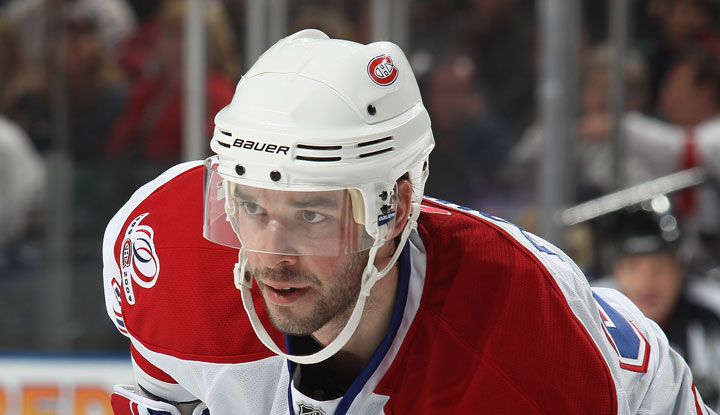TORONTO – Hockey equipment manufacturer Bauer has agreed to stop making certain claims about its helmets, the Competition Bureau said Thursday.

The company is also making a $500,000 donation of equipment to a registered Canadian charity supporting youth participation in sport, according to a deal struck between Bauer and the Competition Bureau.
The federal agency says Bauer’s advertisements for the RE-AKT helmet contained words, images and videos that “created the impression” that the product could prevent concussions in hockey players.
Bauer conducted its own testing on the helmet prior to making the claims, but the bureau says the testing isn’t adequate enough to support these marketing claims. To clarify, Bauer says the inquiry was not about false advertisements but that the claims weren’t backed up by extensive testing. It says it conducted internal and third-party testing to validate its claims and that the bureau did not conclude that its advertisements were false or misleading.
“While we disagree with the bureau’s conclusions regarding the testing conducted by and on behalf of Bauer Hockey, we look forward to putting this matter behind us and continuing to provide our customers with the best possible products,” Rich Wuerthele, of Bauer Hockey, said in a statement sent to Global News.
Under a consent agreement Bauer agreed to donate to a charity, remove any performance claims from the helmets’ marketing materials and packaging and pay $40,000 toward the cost of the investigation.
The bureau says that it typically tries to resolve issues without going to court – in this case, Bauer fully cooperated with the investigation.
- Posters promoting ‘Steal From Loblaws Day’ are circulating. How did we get here?
- Canadian food banks are on the brink: ‘This is not a sustainable situation’
- Solar eclipse eye damage: More than 160 cases reported in Ontario, Quebec
- 3 women diagnosed with HIV after ‘vampire facials’ at unlicensed U.S. spa
READ MORE: Panel finds helmets, mouth guards don’t prevent concussion
“The bureau takes representations to the public about performance claims that are not based on prior adequate and proper testing very seriously, particularly when they relate to the health and safety of consumers,” Matthew Boswell, senior deputy commissioner of competition, said in a statement.
Current hockey helmet testing standards focus on protecting players from catastrophic brain injuries, such as skull fractures. They don’t zero in on concussion, the bureau says.
The science behind concussions in sports is still in its infancy, it says.
For its part, Bauer says it knows concussions are caused by acceleration and deceleration of the brain and “obviously a helmet can not protect a concussion in all situations.”
READ MORE: Canadian docs release 1st national guidelines on concussion in kids
Last year, an international panel co-chaired by Canadian experts said that even the most advanced protective equipment, such as helmets and mouth guards, don’t necessarily prevent a concussion.
“This is not to downplay the importance of protective equipment,” co-chair Dr. Willem Meeuwisse told Global News.
“What is not true is that helmets and mouth guards prevent concussion because what we are talking about is the shaking of the brain inside a hard skull. Putting more padding around the hard skull may not reduce the amount of brain movement . . . it might increase it in some cases,” he said.
READ MORE: Mood swings, memory loss first symptoms of brain disease in hockey, football players
Meeuwisse leads the University of Calgary’s Brain Injury Initiative. He and his colleagues collaborated with counterparts from the United Kingdom, United States, Australia and Scandinavian countries for their research.
Their new guidelines, updated for the fourth time since they were first issued in 2001, also offers advice on how to diagnose and treat concussion during recovery.
carmen.chai@globalnews.ca
Follow @Carmen_Chai




Comments